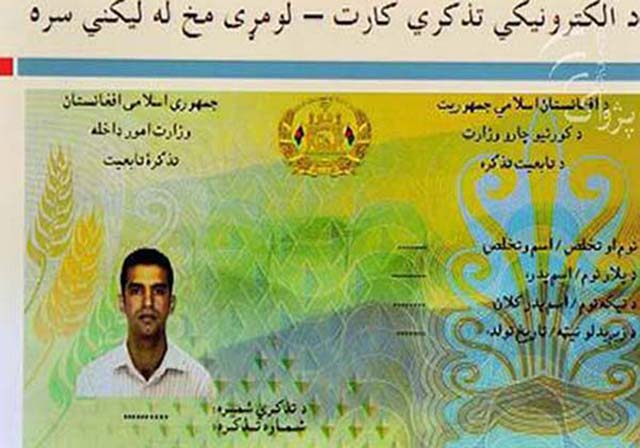KABUL - Ezmarai Baher, the head of the registration department for electronic ID cards, on Monday reiterated his unit's readiness to launch the pilot phase of the digital electronic National Identity Cards (e-NIC) roll out campaign.
He called on the leaders of the National Unity Government to put their political differences aside and issue the order to launch the pilot phase of e-NIC.
"We are fully prepared for the pilot phase. Therefore government leaders should strive to settle the political issues regarding the matter and give the order to launch the job," Baher said.
Some Afghan political commentators have, however, raised concerns that further delays are not in the interests of the people. Initially, it was expected that the test phase will be launched on August 19 and that 369,000 citizens receive their ID cards. This is not however going to happen.
The test phase will initially cover 24 government ministries and eight registration centers will be
"It will start soon and I don't think that this time the delay will be for a long term basis," Baher said.
Among the concerns – causing the delay – is that computer software within the digital ID department needs to be upgraded. In order to do so, negotiations still need to be held with the contractor, sources said.
According to them, the company which has produced the chips for the digital ID cards so far, has stopped producing them and a new contract has yet to be formalized with a new supplier.
In addition, it is believed that staff registering data do not have access to read the data details once uploaded or to bring changes if needed. Only high-ranking staff members can access the read facilities and make changes.
Up to now, 14,000 samples of digital ID cards have been printed.
"As long as the work is delayed, it is a problem for people. The issue should be resolved through consensus as it has become political now," university lecturer Shahla Farid said.
But protecting personal information recorded on the cards is a primary demand by the public. It is also hoped that the issuing of digital ID cards will cut down the problem of electoral fraud.
"I think the modality of distributing digital ID cards has led to disagreements between the president and the chief executive, but they must put aside their differences and find a solution," MP Bashir Ahmad Tayyanj said.
So far the identity of 400,000 Afghans has been registered by the department. (Tolonews)

